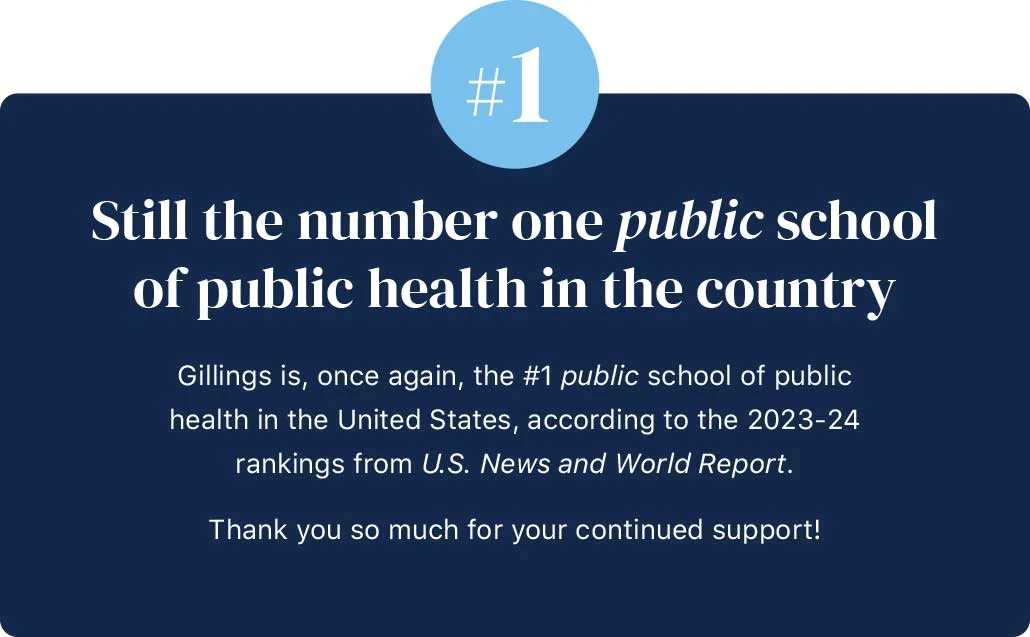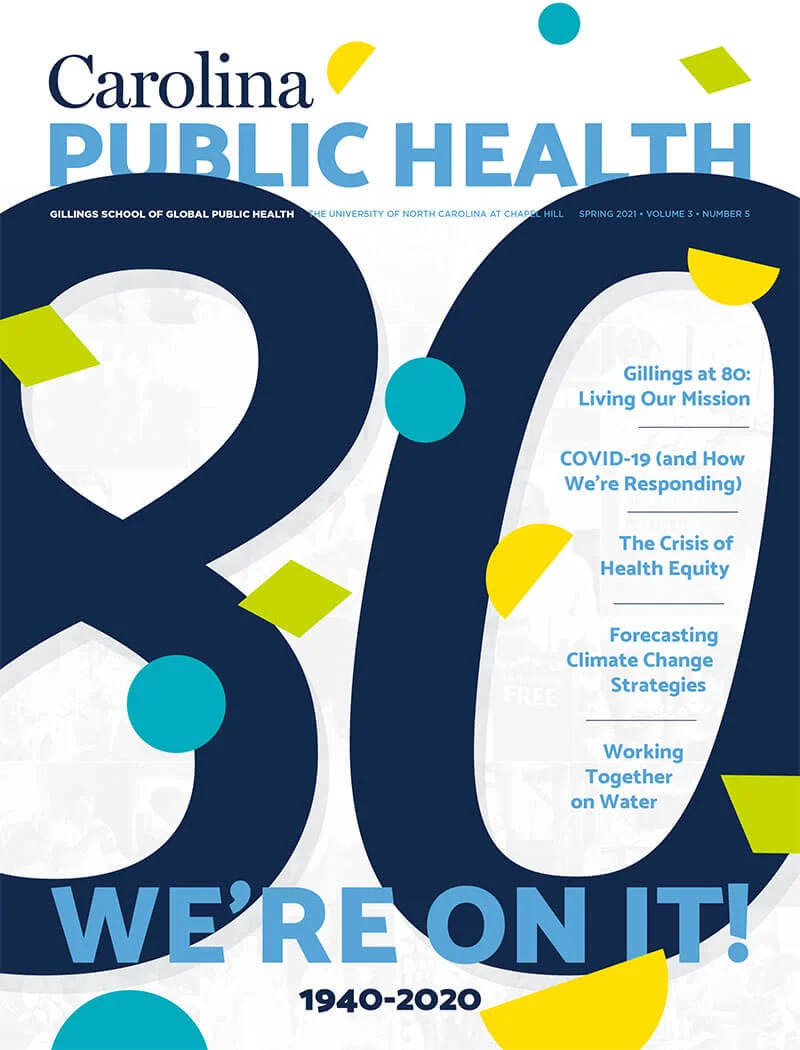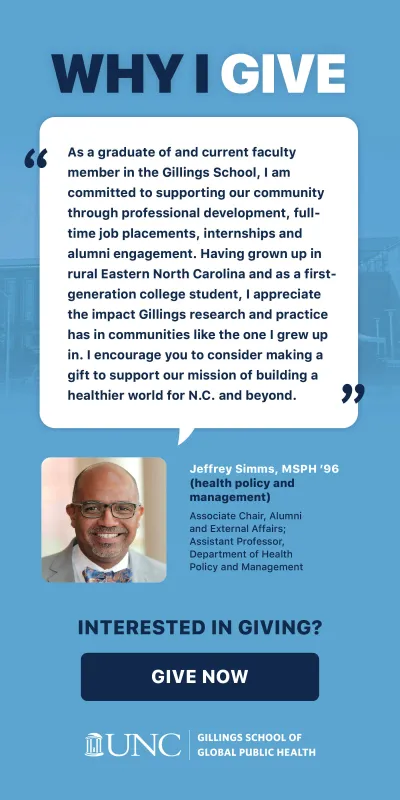Beyond the classroom: The crisis of health equity
Guests at the 2020 Minority Health Conference attended a powerful keynote lecture from LaTosha Brown, co-founder of Black Voters Matter.
Racism isn’t rhetoric. It’s a public health crisis.
The United States is experiencing a collision of public health emergencies. As COVID-19 spreads and the country grapples with a reckoning on systemic racism and violence, the health inequities that lead to poorer outcomes for Black Americans have become more glaring and more deadly.
Through more than 80 years of public health education and research at UNC, the Gillings community is reminded that the mission to advance health equity can save lives. Black lives matter. Work at the Gillings School requires intention and introspection, acknowledging the need to incorporate anti-racism into all facets of scholarship, policy and community action.
“The events of 2020 helped expose that racism, not race, is the root cause of multiple health inequities,” said Kauline Cipriani, PhD, associate dean for inclusive excellence and associate professor in the Public Health Leadership Program. “Inclusive excellence at Gillings is critical now, more than ever, if we are to adequately prepare the next generation of public health practitioners and researchers to achieve our mission of reducing health inequities in North Carolina and globally.”
Rising to the challenge
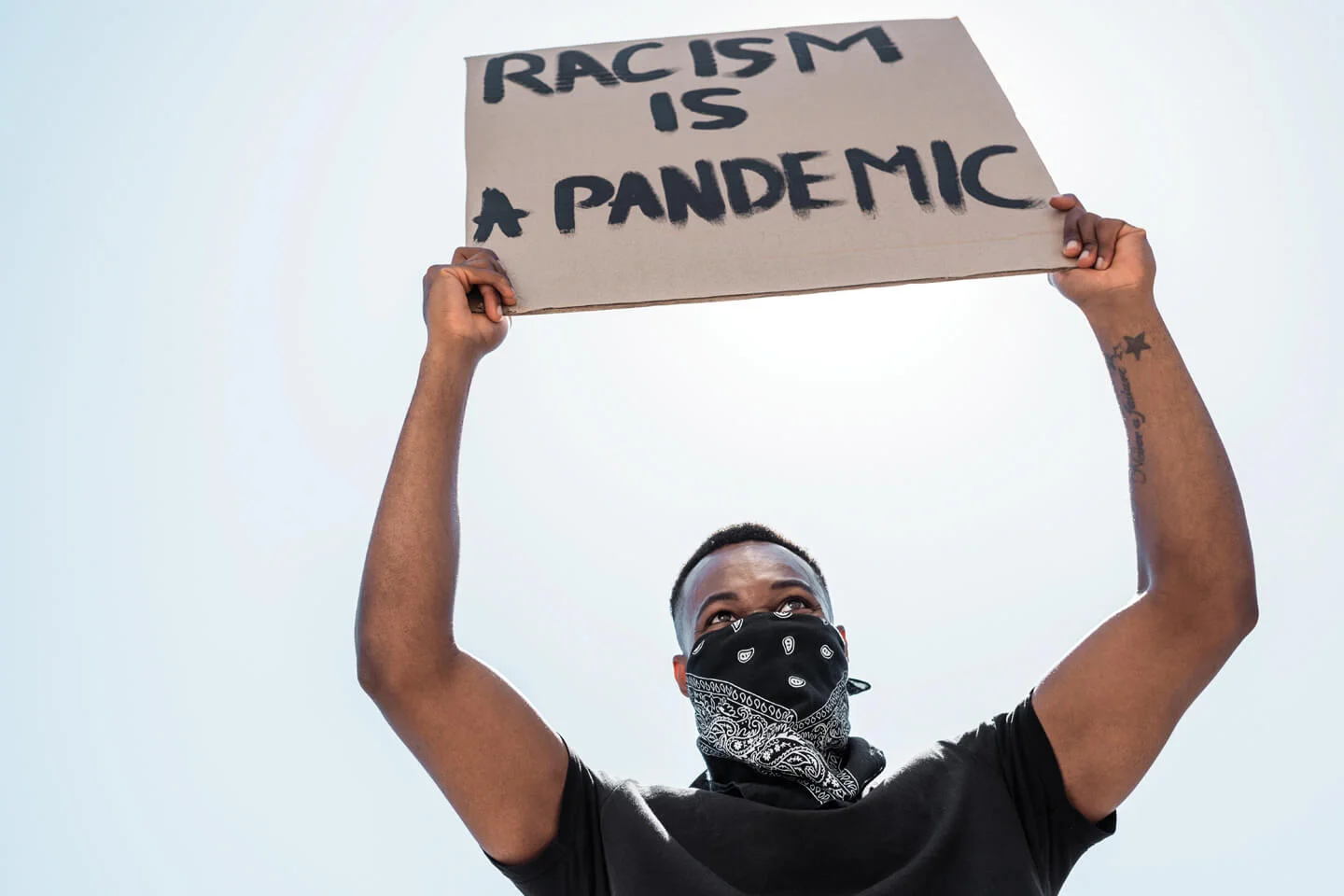
The events of 2020 have exposed the need for critical and urgent solutions to systemic racism.
In response to the collision of crises in 2020, the inclusive excellence team, led by Cipriani, launched the Emergency Preparedness, Ethics and Equity webinar series, which explores social inequities unearthed by the pandemic and our response to it. The series has covered topics such as protection for incarcerated persons, elevating and recentering LGBTQ+ health, and how faith leaders are sustaining community.
Leadership at the Gillings School is committed to full implementation of the Inclusive Excellence Action Plan, and advances have been made in each of six strategic focus areas. Faculty, staff and students have participated in trainings on anti-racism and creating inclusive environments in academic spaces. For the second year in a row, efforts in this area were recognized with receipt of the Health Professions Higher Education Excellence in Diversity (HEED) Award.
Raising awareness
This year is the 50th anniversary of the Minority Student Caucus (MSC), which advocates for students of color in the Gillings School and promotes research and programs addressing health concerns that affect people of color. Since 1977, the MSC has led the annual Minority Health Conference, which has addressed topics ranging from community-based research, social determinants of health, systems of power and more.
The 2021 Minority Health Conference was an all-virtual event held on Feb. 25-26. Co-led by health policy and management graduate students Rachel Singley and Shewit Weldense, its theme, “Body and Soul,” explored avenues of health activism that go beyond the scope of politics.
“We wanted to focus on spiritual, mental and emotional health but also on health activism and how that takes many forms,” Singley explained. “This was inspired by the events of the summer following George Floyd’s murder. People are looking for grassroots and ‘boots-on-the-ground’ activists to be our voice more than ever instead of looking to politicians.”
The conference attracts attendees and speakers from across the country, and this year’s virtual format brought the opportunity to reach an audience on a broader scale. Keynote speakers were Wizdom Powell, PhD, and Sharelle Barber, ScD, MPH.
Reconnecting and reengaging
The Minority Health Conference is a highlight for many, including Gillings School alumni, who often travel from across the country to attend. On the night before the 2020 conference, alumna Stephanie Baker, PhD, Dean Barbara Rimer, DrPH, and Cipriani led a reception to connect with many of these alumni. Called “Reengage,” the event was both a reflection and a recognition that in 80 years of work towards equity at the Gillings School, there is still room for improvement and more work to be done. To that end, Baker and fellow alumna Anita Holmes co-founded the Alumni Inclusive Excellence Committee to further advance goals for inclusiveness and equity at the Gillings School.

During the Reengage event, alumni and leaders came together to develop strategies to grow a more equitable Gillings community.
Advancing research into health equity
Systemic inequities caused by racism, discrimination and unequal access can deny people the most important elements that contribute to good health and well-being, like quality education, good jobs, decent and affordable housing, safe neighborhoods and environments, clean water, nutritious foods, and adequate healthcare.
A majority of faculty at the Gillings School have published work on health equity. Get to know two who are continuing to contribute to equitable health outcomes, both in research and in practice.
Highlighting work in health equity
Carmen Samuel-Hodge, PhD, RD
Associate Professor, Department of Nutrition
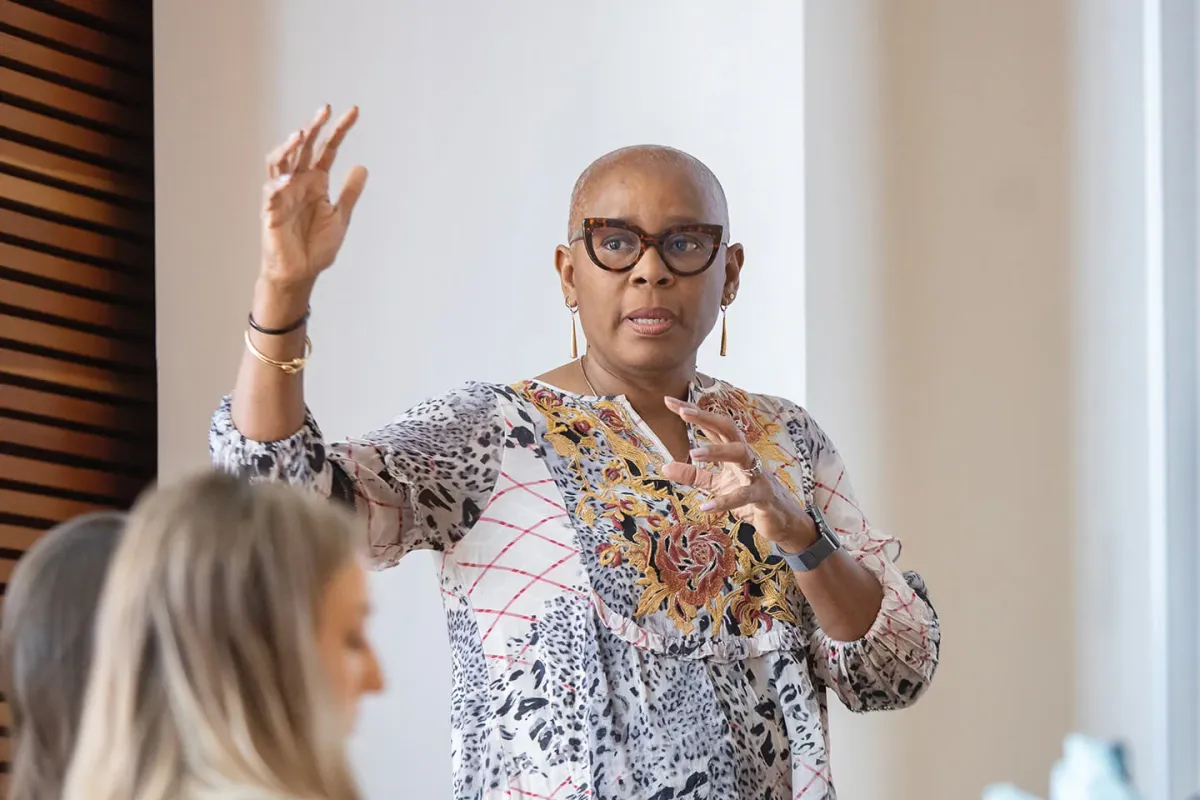
Before arriving in Chapel Hill, Carmen Samuel-Hodge, PhD, RD, spent nine years as a dietician in the United States Virgin Islands. She came to the Gillings School to research personalized strategies that could improve community health care needs.
Location, diet, support systems and access to health care resources are all factors that impact the management of conditions like Type 2 diabetes and hypertension, and they play a major role in the health disparities observed in communities of color and rural populations.
“If you know enough about that context,” Samuel-Hodge explains, “then you can personalize the way you approach a patient’s chronic care management.” And yet these approaches are happening far less often than necessary.
The data on health disparities are clear, and the issues caused by health inequities are numerous, but the complex strategies needed to address them can be paralyzing for public health professionals. When inequalities must be addressed simultaneously on levels of policy, economics or housing, the pace of change can seem dauntingly slow.
Samuel-Hodge – whose focus is on behavior change related to food among Black Americans and those with lower income – sees her work as a critical part of that change. While systemic adjustments are necessary, a single policy can have disproportionate effects across different communities. This makes individual interventions just as necessary.
“It’s going to be difficult, but somebody needs to attend to it. These communities are here, and they deserve quality care.”
“When I first started working with diabetes self-management, I found the research priorities were moving away from interventions to policy, systems and environmental change,” she says. “But the people with these conditions still wanted better care that would suit their needs. What are they supposed to do while waiting for policies and systems to change?”
The search for approaches led Samuel-Hodge to the field of community engagement through translational and implementation research. She is an associate professor of nutrition at the Gillings School and leads the Evaluation Core at the UNC Center for Health Promotion and Disease Prevention. She is also embedded as a translational and implementation research specialist at the Granville Vance Health Department, where she adapts clinical data into actionable and customizable care strategies for rural and underserved communities.
“For these communities, the research has to be practice-based, because you work with what you have already,” she explains. “And then you test what strategies and what systems work better than others.”
This approach is necessary because many study cohorts do not reflect the communities that are disproportionately affected by the conditions being researched. The strategies based on study results are often too complex and expensive for smaller regions to implement, and they may take a longer time to produce significant change in outcomes.
For Samuel-Hodge, the challenge is in identifying how to adapt core elements of research into interventions that can work with the resources available in smaller populations.
“It’s going to be difficult, but somebody needs to attend to it,” she says. “These communities are here, and they deserve quality care.”
Through her work, she has endeavored to address structural issues of health equity, and in 2020, she was honored with the inaugural Gillings Faculty Award for Excellence in Health Equity Research.
Dana Rice, DrPH
Assistant professor, public health leadership program; Assistant Dean for Master’s Degree Programs
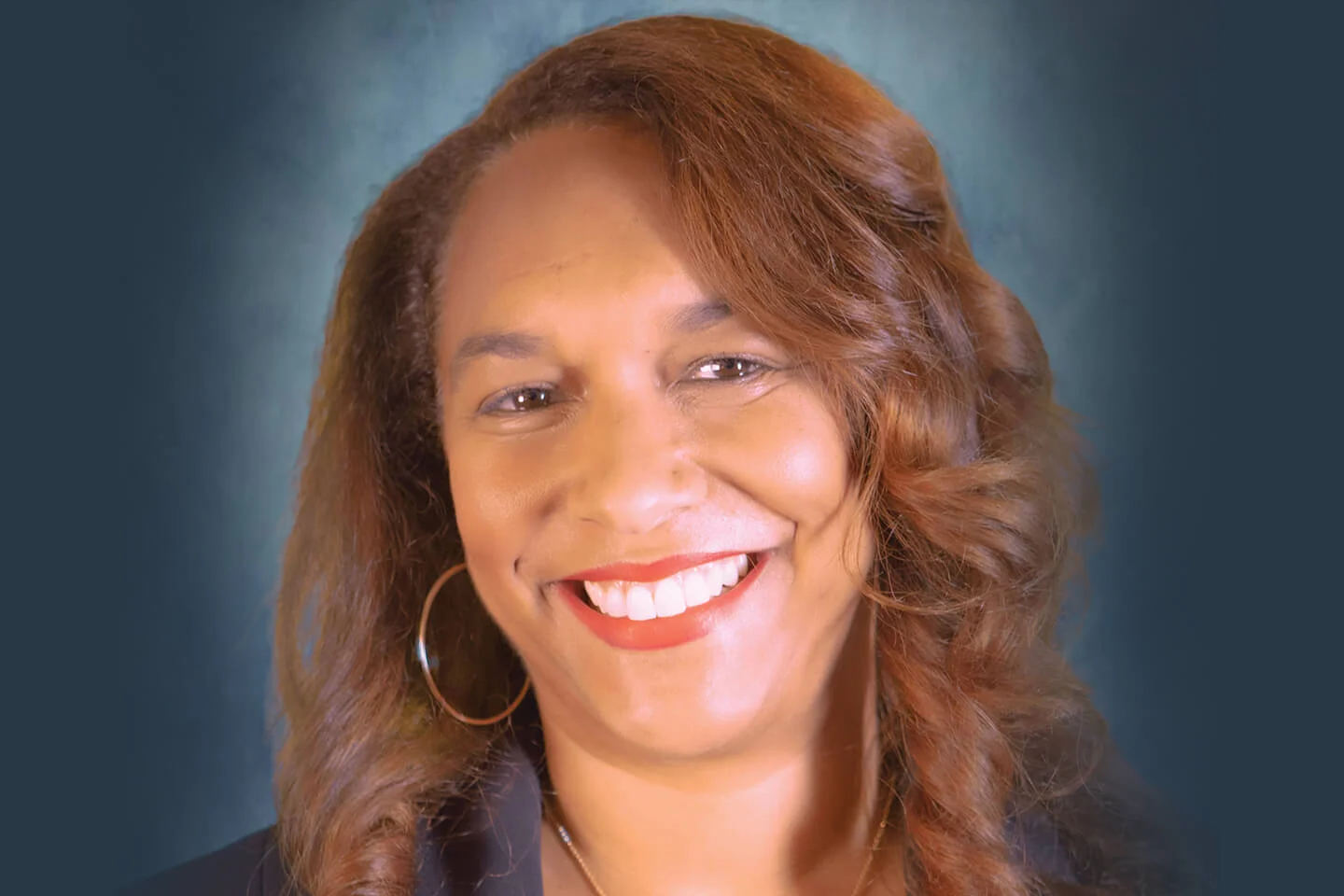
The United States has the largest incarcerated population in the world, and that population is experiencing negative public health outcomes as a direct result of the country’s mass incarceration policies.
Dana Rice, DrPH, assistant dean for master’s degree programs and assistant professor in the Public Health Leadership Program, began her career in public health in search of strategies to prevent the spread of infectious diseases within the correctional system. But she soon found that the health of people who are incarcerated was inextricably linked to challenges at a systemic level.
“I started off studying HIV and STD prevention in jails,” she says, “because we know the risk factors for developing certain infectious diseases are similarly aligned with the risk factors that lead to someone being incarcerated. As I worked within the system, I came to realize it’s not serving people, either for improving health outcomes or preventing crime. Studies have shown that incarceration is least effective at doing either of those things.”
“Public health disparities are seen more acutely in populations that have been incarcerated or that have contact with the criminal legal system.”
Rice says the criminal legal system is having a net negative impact because it’s not designed to support health and well-being. And because of discrepancies in the way the law is applied across communities, people of color and other marginalized populations bear the heaviest burden of that impact.
“The disparities we observe in public health are seen more acutely in populations that have been incarcerated or that have contact with the criminal legal system,” Rice explains. “There’s nothing about interacting with the system that improves access to things like housing or education, which are the exact things that make communities safe and healthy. Even moving downstream, there are negative implications – what we call collateral consequences.”
Collateral consequences are legal restrictions imposed on those with a criminal conviction that create barriers for re-entry into society. A criminal conviction can impact a person’s ability to find housing or employment, own property, get an education, vote or gain access to social services. These consequences increase the risk of recidivism and undermine the criminal legal system’s ostensible goal of rehabilitation.
And they don’t just impact those who have been incarcerated.
“Removing someone from a community has an impact at a family level, and it disrupts social cohesion,” Rice says. “When you remove so many people from certain communities, you can create total disruption of the social capital that exists, which is important for physical and psychosocial well-being. Couple that with the other social- and political-determinant-of-health challenges experienced by under-resourced and marginalized communities, and you have an unhealthy environment for everyone.”
In her current research, Rice examines how a broader system transformation can improve health outcomes for people who have been marginalized. This approach allows for thoughtful considerations of how the system impacts people before, during and after incarceration.
“I don’t talk about the system as the ‘criminal justice system’ – I call it the ‘criminal legal system,’ because I think it’s questionable whether the system has been just to everyone,” she says. “We’re at a tipping point where people recognize the need to do something about it. You cannot have a conversation around creating a healthy, equitable and just society that centers human rights if you leave out the discussion of how mass criminalization and mass incarceration have affected communities.”


